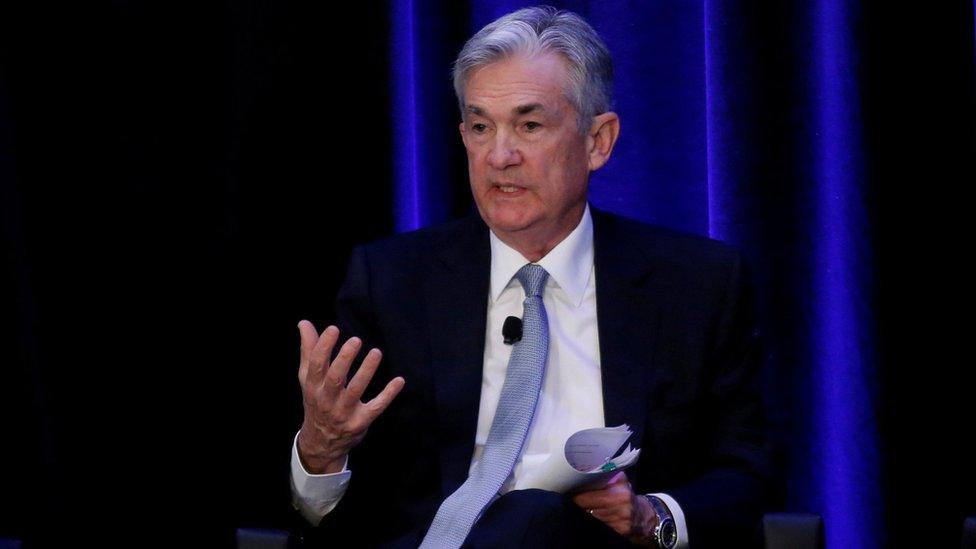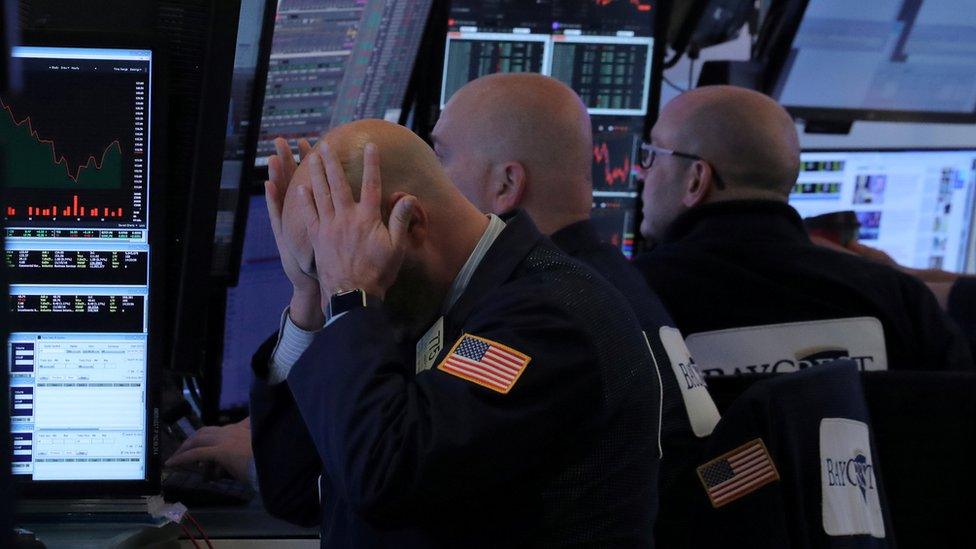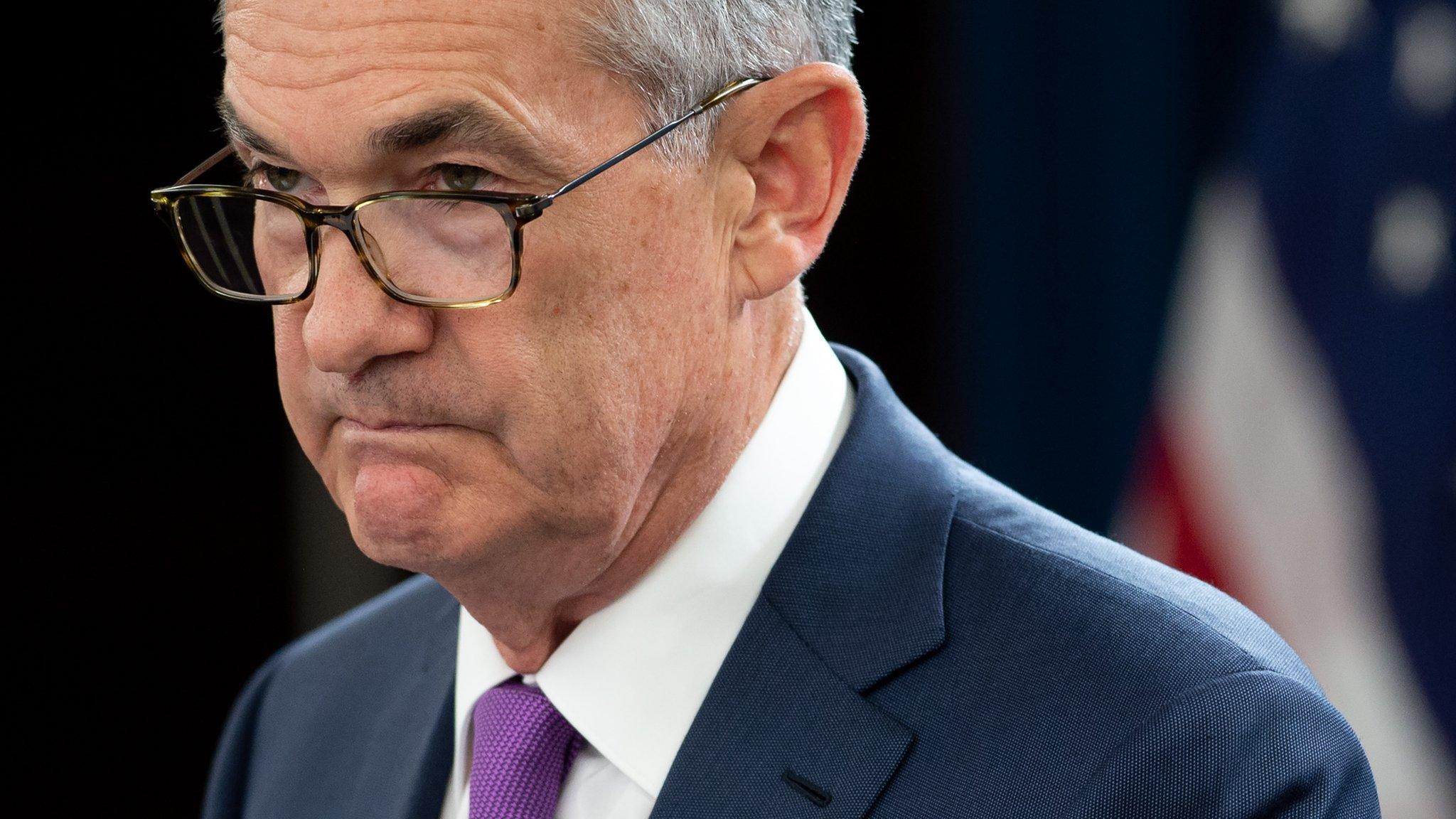'No' Jerome Powell will not resign
- Published

Federal Reserve Chair Jerome Powell says he is listening carefully to market signals
Federal Reserve Chair Jerome "Jay" Powell took steps to reassure financial markets on Friday, saying that the US central bank would be "patient" about rate rises.
He also defended his independence, saying he would not resign if requested by US President Donald Trump.
Stocks in the US spiked after the remarks, made at a meeting of the American Economic Association.
The Dow and S&P 500 closed more than 3% higher. The Nasdaq climbed almost 4.3%.
The gains, also driven by strong job creation data, reversed sharp falls from a day earlier, extending the recent rollercoaster ride in markets.
Investors have grown nervous in recent months, worried in part about moves by the Federal Reserve to increase interest rates, despite signs of a global growth slowdown.
Mr Trump has been one of the loudest critics of the rising rates, which raise the cost of borrowing and risk dampening economic growth.
He has blamed the Fed for stock market declines and said he is "not even a little bit happy" with Mr Powell, whom he named to lead the Fed in 2017.
At the conference on Friday, Mr Powell said he has not spoken directly to Mr Trump and would not resign if asked. No face-to-face meetings have been scheduled, he added.
'Ahead of the data'
He also defended the Fed's rate rises, pointing to strong economic data that suggest businesses and households can handle the higher costs.
A new jobs report on Friday showed US employers added more than 300,000 jobs in December - well above expectations.
Mr Powell said he thought the recent market declines reflected concerns about slowing global growth and trade tensions - but are "well ahead of the data".
The Fed is "listening sensitively" to the market signals, as well as data showing that inflation rates remain relatively muted, he added.
"We will be patient as we watch to see how the economy evolves," he said. "We are always prepared to shift the stance of policy and to shift it significantly" if needed.
Mr Powell said that he did not believe the Fed's removal of stimulus by shrinking holdings of Treasuries and mortgage-backed securities played a major role in the recent market turmoil.
But, he said, "If we reached a different conclusion we wouldn't hesitate to make a change."
- Published25 December 2018

- Published20 December 2018
